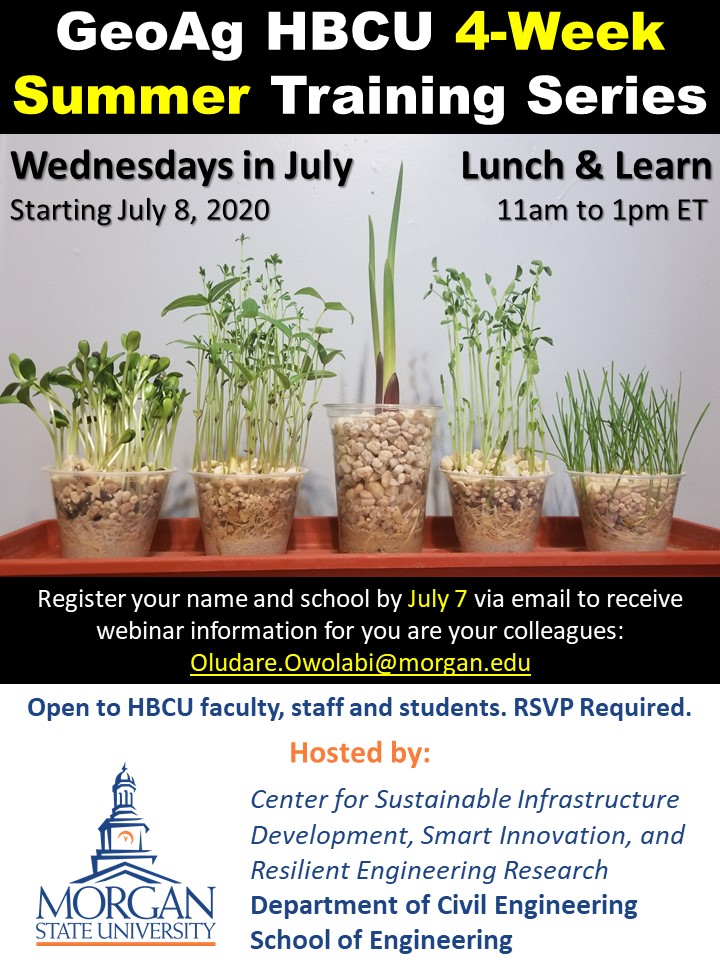
July 3, 2020 - Washington, DC - From the Morgan State University School of Civil Engineering in Baltimore to Arsi University School of Agriculture in Ethiopia, over two dozen academic institutions worldwide are re-examining the realities of what rocks can also do to advance the human living experience.
Over 50 faculty researchers, spanning more than 10 disciplines of science are investigating the new theories of geological agriculture (GeoAg) introduced in the book River Stones Grow Plants by Mr. Richard Campbell from To Soil Less Consulting, Dr. Arvazena Clardy from Tennessee State University and Dr. Henry Teng, formerly from George Washington University, and now at Tianjin University in Beijing, China. This book describes the emerging science of GeoAg, which is defined as the study of growing plants in rocks without soils and fertilizers indoors or outdoors.
Researchers globally are uncovering the vast multitude of nutrient material embedded in the rocks of the planet Earth, investigating new applications from animal feed improvements to advances in aerospace engineering. At Tennessee State University Department of Animal Science, researchers are looking at GeoAg animal feed practices with animal science professor Dr. Carollyn Boykins-Winrow, who comments, “With promising results so far, we look to soon provide dietary relief to our animals faced with intestinal parasites from plants grown in soil.”
With traditional agriculture advancements, Dr. Bipul Biswas and Dr. Steven Samuels of Fort Valley State University in Georgia are investigating GeoAg applications for small farmers, in greenhouses and with field crops. These faculty researchers and others have joined together and formed the Academic Association of Geological Agriculture Research (AAGAR), a collective of innovators from around the world dedicated to uncovering and unlocking the new mysteries of rock through the theories of GeoAg and related sciences.
In New York, Bronx Community College/CUNY researchers are investigating a range of applications, seeking grants to uncover the following possibilities: 1) Researching GeoAg nutrition programming in South Bronx food deserts residents in an effort led by nutrition scientist, Professor Charmaine Aleong; 2) Biology professor Dr. Charles Maliti is investigating GeoAg food nutritional absorption rates in the stomach; and 3) Chemistry professor Dr. Dickens St. Hilaire is assessing the development of GeoAg soil management protocols to keep soil fertile and healthy. “We are excited to further investigate the theories of GeoAg across an array of applications here in the Bronx,” comments Dr. St. Hilaire who has been working during the pandemic to increase his department's knowledge of GeoAg theories. See some of BCC/CUNY GeoAg efforts online here: http://www.bcc.cuny.edu/academics/academic-departments/chemistry-and-chemical-technology-department/
Overseas more than a dozen universities in Africa are beginning the exploration to bring geological agriculture to their shores. Agri-Business professor Bedilu Demissie of Arsi University of Ethiopia successfully replicated GeoAg applications by germinating maize in Ethiopian rock indoors. See how Aris University is joining the rock research efforts here: https://www.arsiun.edu.et/index.php/component/k2/item/167-geological-agriculture-comes-to-arsi-university
Dr. Oludare Owolabi, Director of the Morgan State University School of Engineering, Center for Sustainable Infrastructure Development, Smart Innovation, and Resilient Engineering Research will host GeoAg HBCU 4-Week Summer Training Series on Wednesdays in July, starting Wednesday, July 8, 2020 from 11am to 1pm. Special topic the first week: Theoretical GeoAg Aerospace Engineering with Dr. Arthur Willoughby, aerospace engineering lecturer, Morgan State University and Professor Sami Segni, geologist, Bronx Community College/CUNY. Each week a different area of engineering will be featured. RSVP Required to: oludare.owolabi@morgan.edu to receive webinar link.
The non-profit recently formed to research geological agriculture activities in conjunction with the world's universities and teach GeoAg in local food desert communities in Atlanta is The K.E.E.P. led by Morehouse graduates Mr. Aaron T. Short and Mr. Quincy Bonds. The K.E.E.P hosts GeoAg Home Training workshops on Sundays at 2pm for the public. RSVP - https://keep-inc-geo-ag-sustainable-sunday-class.eventbrite.com
About the K.E.E.P. - Atlanta based nonprofit dedicated to educating youth in forms of entertainment and environmental education programming with geological agriculture training and education. K.E.E.P. advances its community training of GeoAg programming through active integrated research programming with partner institutions. To support efforts to advance GeoAg research and train youth in entertainment and environmental education efforts with GeoAg visit: www.keep-inc.org
About To Soil Less Consulting (TSL) - A family-owned business and consulting firm that specializes in integrating geological agriculture and related sciences into businesses, municipalities, universities, and corporations around the world. TSL is a group of global consultants dedicated to advancing the total human experience through geological based sciences. For more information about geological agriculture, download the book River Stones Grow Plants and see videos, visit the TSL website here www.tosoilless.com.






















